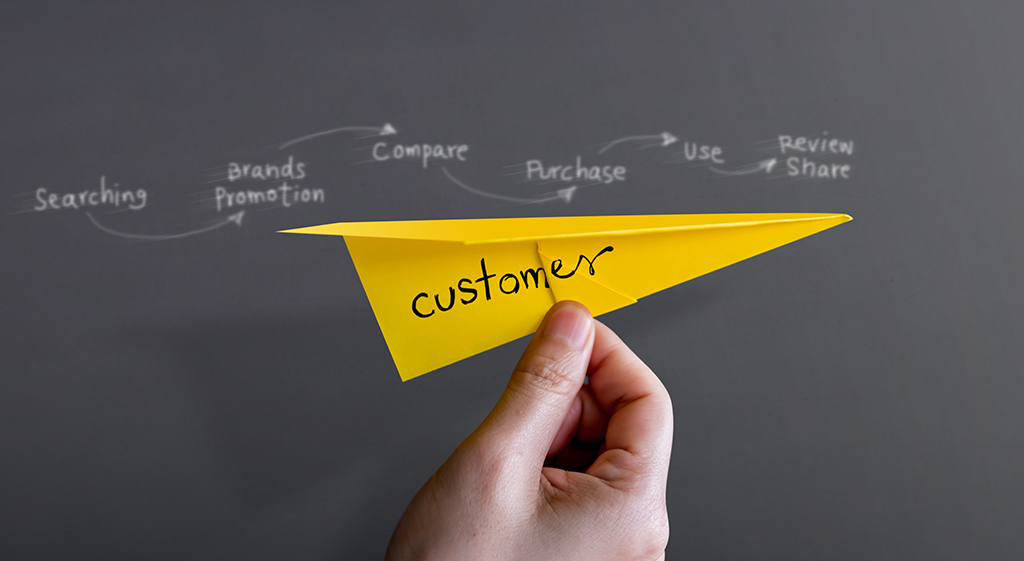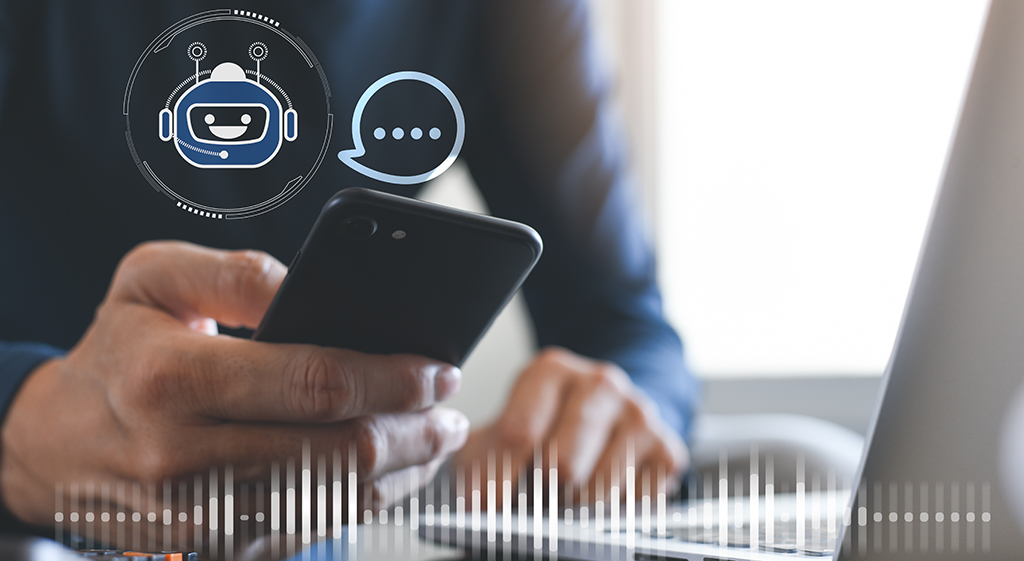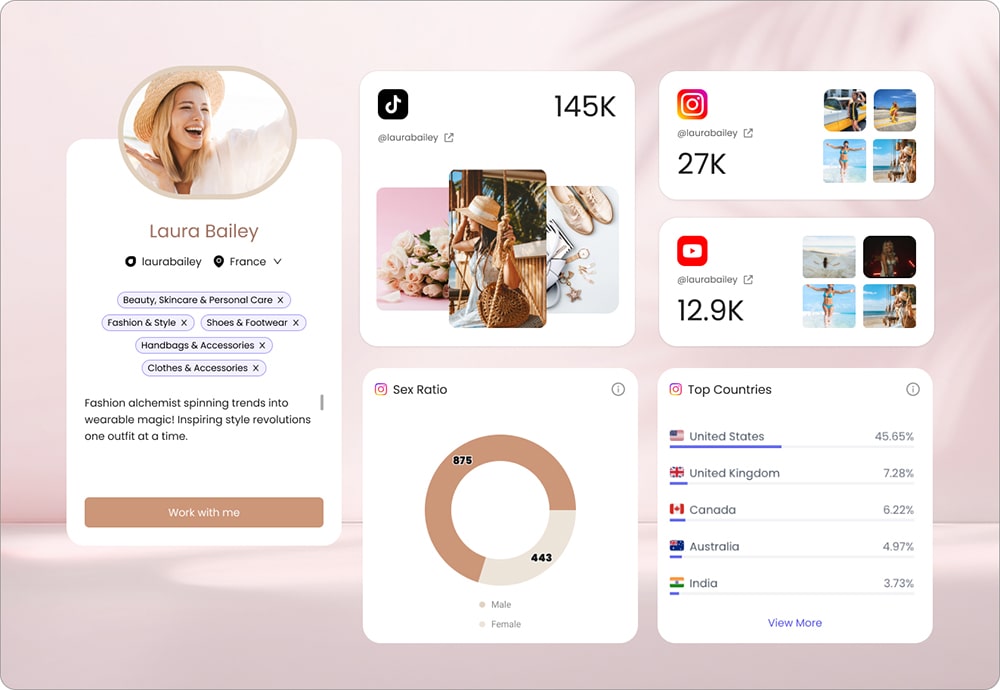A lot is happening in the world of Artificial Intelligence (AI) right now. From healthcare to design, AI is changing how industries and individuals work.
AI is also revolutionizing the way businesses market their products and services. Understanding customer needs, matching them with the right offers, and suggesting hyper-personalized solutions are at the core of marketing, and all are capabilities that AI can greatly enhance.
Given the potential of AI technology, businesses, and marketing specialists must understand what type of marketing AI tools can do and what types of applications are available.
In this article, we are taking a closer look at AI in marketing, and how you can use AI technology to maximize your customer engagement and ultimately grow your business.
Introduction to AI in Marketing
In today’s fast-paced digital world, when brands have more opportunities, but also more competition than ever, businesses are always on the hunt for new opportunities and innovative solutions to effectively reach and attract their target audience.
The advancements of AI technology have brought about many such opportunities by introducing marketing tools that allow brands to stay ahead of the competition through more effective and tailored campaigns.
Using AI in marketing offers a wide range of capabilities that go beyond what traditional marketing methods can achieve. AI tools have the capability to access, analyze, and make sense of vast amounts of data in no time, offering critical insights into customer behavior and potential trends. This knowledge can then empower marketing teams to create more effective marketing strategies and tailored campaigns. One area in which AI tools are especially powerful is data analytics and predictive modeling. Through machine learning (ML) algorithms, AI tools can analyze social media platforms, website visits, and other customer data to predict future outcomes.
They also have the capacity to skyrocket productivity by automating repetitive tasks. From chatbot interactions to automating email campaigns, AI tools can streamline your team’s marketing activities, helping marketers concentrate on the strategic and operational parts of the campaigns.
AI tools allow marketers to optimize their operations significantly, ultimately leading to a greater ROI and better utilization of resources, and as such, are becoming an indispensable tool in the arsenal of brands and marketers.
How AI is used in marketing
Using AI for marketing comes with a plethora of applications that can help you enhance decision-making, optimize the effectiveness of your campaigns, and improve customer experience. From content personalization to customer segmentation, AI gives marketers the tools for unlocking valuable customer insights, streamlining processes, and delivering more tailored messages.
Below are some of the key ways in which you can utilize AI in your marketing efforts.
Improving Customer Segmentation With AI
Customer segmentation and targeting are essential, and often the first step, in marketing analysis and strategy planning. Knowing who your customers are is the starting point in identifying where you can reach them, and how to appeal to them.
However, the traditional models of customer segmentation, such as demographic, geographic, or psychographic segmentation, among others, can be time-consuming, costly, and often inaccurate or too vague. These data quality challenges can result in a wasted marketing budget and wrong strategies.
Here’s where AI comes into play. Improving customer segmentation and targeting is one of the most common use cases of AI in marketing. AI techniques use data-driven algorithms to optimize customer targeting by identifying and creating segments.
Some of the more common AI techniques used in marketing are:
-
- Clustering techniques – As the name suggests, these techniques group, or cluster, the existing or potential customers based on their similarities or differences, as well as their value for the business in the short- and long-term.
-
- Classification techniques – These techniques are used to understand and group customers into “sub-populations”, and this information can then be used to predict the age, location, gender, income, interests, and other attributes of the customers.
-
- Recommendation systems – These are some of the most widely used techniques in AI for marketing and are used to customize product or service suggestions based on customer interests or other attributes.
-
- Natural language processing (NLP) – NLP techniques can be used to analyze customer feedback, reviews, and online sentiment to improve or diversify company services and offerings. Think of this as social media monitoring, but automated, faster, and more accurate.
-
- Lookalike modeling techniques – Here, AI can identify similar behavior and characteristics between existing customers, even if it’s not instantly noticeable. These lookalike models can then be used to target new audiences who share similarities with your existing customer segments, increasing sales and improving retention.
-
- Continuous Learning and Optimization – AI models can learn from customer feedback and interactions continuously, giving you real-time insights you can use to alter and tweak your campaigns and marketing efforts to meet customer preferences and market dynamics.
Leveraging AI for customer segmentation and targeting offers numerous advantages to your brand, significantly improving its marketing efforts. It enhances the understanding, boosts the marketing ROI, and gives you a competitive edge, all while fostering innovation. AI can help you create more accurate and dynamic customer segments, based on which you can then create more personalized promotional material. Based on this, you will also be able to adapt and respond to customer needs faster, ultimately improving customer satisfaction and growing your business.
Enhancing Content Personalization Through AI

Consumers today are facing an information overload, as a result of which they are becoming significantly more selective readers and spenders. As a result, content creators, brands, and marketers are facing the challenge of creating increasingly more personalized and engaging content.
To succeed, businesses need to be able to predict customer needs and offer content and solutions accommodating them. And this is another case when AI in marketing can shine.
Predicting and meeting user needs requires access to a significant amount of data and the ability to analyze it, something AI is known to handle exceptionally well. In practice, this has quite a few use cases.
Firstly, AI marketing tools are trained on a tremendous body of textual content and are able to produce content based on a few prompts and details. These tools can be used both for generating content from scratch and for doing in-depth research to understand the market needs and customer preferences to create more tailored content. They also allow you to make edits and optimize your content in real-time.
Then, AI can help brands create content based on data-driven insights. AI algorithms can analyze vast amounts of customer data, including browsing behavior, purchase history, demographics, and preferences, to give deeper insights into individual customers, as well as customer groups. This information can then be used for crafting more tailored content based on customer preferences instead of creating content that shoots in the dark.
Another form of content customized by AI, and arguably one of the more common uses of AI in marketing, is product or service recommendations. AI-powered recommendation systems analyze past customer behavior and preferences to suggest products, services, or content based on the actions of individual customers. These systems leverage machine learning algorithms to continuously refine and improve recommendations over time, leading to more accurate and relevant content suggestions.
Lastly, AI marketing tools can be effectively used in A/B testing. AI algorithms can automate the A/B testing processes by rapidly testing the performance of variations of each piece of content, from headlines to CTAs, and measuring their effectiveness. This can help brands and marketers identify the content elements that perform the best with each specific audience and then personalize their content or advertising strategies based on these insights for better engagement and conversions.
AI technology is a powerful tool for content personalization, which, if used correctly, can help brands to create more engaging and relevant experiences for their customers.
Influencer Marketing with AI
Another marketing niche that saw significant changes due to the emergence of AI is influencer marketing.
Influencer marketing is on the rise over the last few years, but despite being a fast-growing industry due to its effectiveness and high ROI, it comes with a few challenges for marketers. These challenges include influencer fraud and the difficulties of measuring precise ROI from the campaigns.
Luckily, the recent advances in AI help brands and marketers tackle these challenges, as well as many others. Over the last couple of years, several tools emerged that can help you enhance and optimize your influencer marketing strategies and operations.
Below are some of the ways AI can be utilized in influencer marketing.
Preventing Influencer Fraud
Influencer fraud is a major problem in the industry, which can result in millions of lost marketing budgets. So much so that 67% of the brands mentioned being concerned about it. Because influencer marketing is so lucrative, many creators buy fake followers to attract brand deals, without delivering much in return.
Here, AI tools dive deep into the study of influencer accounts, studying their audience, content, and performance to detect any signs of potential fraud, as well as fake accounts and bots. This can help to significantly reduce the chance of fraudulent collaborations, ensuring that your brand works only with creators who can deliver value.
Deep Audience Analysis
Working with influencers whose audience matches your demographic is the pillar of the success of any influencer marketing campaign. For this, a deep analysis of the influencer audience is necessary. Here too, manual data collection can be time-consuming and often inaccurate.
AI tools like the Viralmango Analytics tool for influencer marketing can streamline the process, making it faster, more accurate, and more in detail, giving you all the critical information about the creators you are looking to partner with to make sure they are a good fit for your brand.
Influencer discovery
Lastly, influencer discovery is one of the key aspects of influencer marketing and can take up significant resources. Working with the right AI tools can simplify the process significantly, helping marketers to find creators in their desired niche, matching their audience size and financial requirements in only a few minutes, without having to scout the Internet for days.
This is far from being an exhaustive list of the benefits the influencer marketing industry can reap from utilizing AI tools. The potential uses of AI are many and can vary depending on your specific campaign needs.
Chatbots For Strategic Marketing Automation
The chatbots we’ve come across at some point on the websites we’ve visited are another form of AI in marketing. More specifically, chatbots are AI-powered assistants designed to simulate human conversation with customers visiting the website through instant messages.
Chatbots come with quite a few benefits for businesses. One of the main benefits is their ability to scale customer interactions: unlike humans, chatbots can handle many conversations at once, without making the customer on hold. As a result, no matter the number of visitors requiring assistance, they can all receive instant replies and solutions to their concerns.
Another advantage of using chatbots in AI marketing is their potential of improving conversions and generating leads. Through closely interacting with customers and answering their concerns accurately and instantly, chatbots help to generate trust towards the brand. Additionally, they can access and analyze customer data in real time, offering personalized and targeted answers to provide relevant recommendations or product suggestions.
Natural language processing (NLP) is at the heart of chatbots, allowing the bots to interpret the inputted language and keywords, understand what the visitor is looking for, and offer them the response in seconds. This significantly decreases the workload of the customer service team, as they then only need to deal only with very specific concerns the chatbots weren’t able to solve. Many companies train chatbots using the responses to the most common questions, as well as use machine learning technologies for the bots to learn from the previous interactions, improving the efficiency and accuracy of the responses each time.
Depending on your needs, there are several types of chatbots your brand can use:
-
- Rule-based chatbots – These are the chatbots following pre-defined rules, e.g. answering only a specific set of questions or commands.
-
- ML chatbots – These are the chatbots that are learning from their previous interactions and are becoming more intelligent over time, as described below.
-
- Contextual chatbots – Contextual chatbots are bots that show a “personalized” approach to every conversation by analyzing the customer’s data and offering them tailored responses.
-
- Hybrid chatbots – Hybrid chatbots are a mix of ML and contextual chatbots and offer customers more personalized responses that go beyond the mere provision of answers to specific questions.
Chatbots offer a wide range of benefits but come with a few downsides too. The inability to understand the emotional state of the visitor and the incapacity to solve more complex queries often make them less effective than their human counterparts, but their effectiveness for businesses with a high volume of customer interactions makes them a beloved tool for brands worldwide.
AI-Driven Customer Journey Mapping

Customer journey mapping, the system outlining the different stages the customer goes through to make a purchase, is another key marketing stage that can benefit greatly from AI technology. The practice of mapping gives brands deep insights into the users, their preferences, and the actions they take that lead them to make a purchase.
By accessing vast amounts of customer data, AI tools can analyze data on customer interactions, transactions, website behavior, social media, and more, identifying patterns and insights that can help marketers to map the customer journey accurately.
This information can be critical in streamlining your marketing operations on several fronts. For example, by using the customer journey mapping data provided by AI, you can identify customer journey bottlenecks and the pain points the users are experiencing. These insights can allow your brand to optimize specific touchpoints, address the main pain points of visitors, and identify opportunities for improvement and growth.
The results of customer journey mapping data can additionally be used when utilizing chatbots, with the responses more strategically tailored to guide the customers through the purchase process.
Lastly, using AI for customer journey mapping can help with attribution and ROI analysis, one of the main pain points of marketers. AI algorithms can analyze the impact of various touchpoints and marketing efforts throughout the customer journey, indicating how specific interactions perform, and helping to allocate resources more effectively.
AI-driven customer journey mapping is an iterative process: through continuously analyzing customer data and feedback, AI can refine and optimize customer journey data in real-time, to ensure that your marketing efforts remain aligned with customer needs and expectations.
Measuring Campaign Success With AI Analytics
AI tools are useful not only for creating content and understanding customers better but can be used also for understanding the performance of campaigns. In fact, its powerful data analytics properties make AI an indispensable tool for marketers looking to make more sense of the data in their possession. AI is adept at self-learning, is capable of learning and analyzing data without any human input, and as such, can continuously measure and analyze data to understand how different campaigns are performing.
There are several ways your brand can leverage AI to measure the success of its campaigns.
-
- Social listening – Social listening tools monitor the social media platforms in real-time, analyze user sentiment, and give comprehensive information about the feelings of the users on a specific product and campaign, or the brand in general.
-
- Data collection and integration – AI tools can automate the collection and integration of data from various sources, including customer interactions, website analytics, CRM systems, social media platforms, and advertising platforms. Marketers can then consolidate the data from disparate sources and access a comprehensive view of campaign performance across many different platforms.
-
- Customer segmentation – Customer segmentation was mentioned earlier, but AI tools can help marketers not only segment the audiences but also analyze how each segment has been performing, to understand which strategy has worked better with which segment.
-
- Attribution modeling – AI algorithms can employ advanced attribution models to determine the contribution of different marketing channels, touchpoints, and campaigns to the final result. This can help brands to understand the impact of each element of their marketing mix, and use this information to allocate their resources more effectively to increase their marketing budget ROI.
Case Studies: Successful AI-Powered Marketing Campaigns
-
- The American Marketing Association x rasa.io
The American Marketing Association (AMA) has long established itself as a leading voice in the marketing landscape worldwide. Its website serves as a hub of industry knowledge, offering marketers valuable resources on marketing, branding, and customer experience, to name a few.
To effectively serve its vast subscriber base of over 100,000 individuals representing diverse industries from education through to finance and healthcare, the AMA sought the assistance of rasa.io, an AI marketing tool designed for creating personalized email marketing campaigns and distributing them.
The tool uses solutions indicated by AMA to curate customized emails for different subscriber segments, sending them content handpicked based on their specific needs and interests.
This approach has helped AMA to enhance engagement with its newsletters and gain valuable subscription insights, all while simplifying its marketing organizational efforts.
-
- ClickUp x SurferSEO
While AI-powered content writing has sparked its fair share of opinions and controversies, its application goes beyond simply relying on ChatGPT to generate extensive blog posts.
ClickUp, a project management solution, was quick to recognize this. ClickUp leverages the natural language processing AI tools and machine learning technology of SurferSEO, an SEO-oriented content editor, to optimize content creation in various ways. The AI tools assist ClickUp in identifying opportunities for content optimization, determining the specific keywords to include in articles and their density, and gaining insights into the ideal article structure based on the highest-ranking results for any given topic. This encompasses factors such as the number of images to include, the length of the content, and the number of subheadings, guiding ClickUp through the creation of well-structured, keyword-rich content that resonates with its target audience.
As a result, ClickUp has been able to increase its blog traffic by 85%.
-
- Euroflorist x Evolv AI
Website A/B is a valuable and much-used solution for optimizing on-page elements, ranging from images to menu layouts to CTA buttons, to achieve maximum engagement and sales. To do this quickly and accurately, Euroflorist turned to Evolv AI, an AI-driven personalization platform, to help them determine the winning design option for their website.
Evolv AI employed “massively multivariate testing,” which allowed it to analyze thousands of variants simultaneously, ultimately landing on the optimal one. This approach outperforms traditional A/B testing by dividing experiments into groups, and exclusively testing the top-performing variants from each group.
The 11-week experiment helped the Euroflorist to refine their website and achieve an optimal setup that helped them to boost their conversion rates by 4.3%.
Future Trends And Opportunities in AI Marketing

AI is evolving by leaps and bounds and is here to stay. In this situation, staying ahead of emerging AI marketing trends is crucial for brands, businesses, and marketers to remain competitive in the expanding digital world. And keeping an eye on current and future trends is one of the ways to achieve sustainable growth.
Below are some of the most groundbreaking AI marketing trends you should keep an eye on that have the potential to revolutionize how marketing is done in the near future.
-
- Hyper personalization – Users expect brands to predict their needs and cater to them, and as such, personalized content is the new norm. As time goes by, and the competition grows, companies need to be able to hyper-personalize and hyper-target their content to meet the preferences of their customers.
-
- Predictive analytics – Predictive analytics capabilities of AI are continuously improving, and AI tools are getting better at predicting customer demands and behaviors. And as these capacities grow, brands are more likely to use these tools to optimize their strategies.
-
- Content creation and curation – AI will become increasingly better at creating, optimizing, and recommending content tailored for individual users and based on their needs, making content marketing more effective.
-
- Image and voice recognition – Image and voice recognition tools develop hand-in-hand with text-based AI tools. In the near future, advanced AI tools will allow marketers to identify images, videos, and audio files related to their brands, assisting them in understanding customer preferences, as well as brand sentiment, much better across various platforms.
-
- Voice assistants and smart speakers – The rise of voice assistants and speakers are already driving marketers to adapt their strategies to accommodate voice searches.
As we embrace the era of AI marketing, it is vital for businesses to keep their hand on the pulse of the latest industry trends and developments to stay competitive and successful. Being in the know on these trends will not only help streamline your marketing strategies but also help create trusting relationships with our target audience.
Conclusion
AI is changing the way marketing is done, making it faster, more effective, and more personal. As AI continues to advance, brands can no longer neglect this technology, as by sticking only to the old ways, they risk falling behind.
The AI technology used in the recently-discovered or launched tools can help marketers uncover hidden details or insights about their audience, from their preferences to potential future behavior, automate manual repetitive tasks, and create more personalized offerings, increasing the chance of campaigns performing well. So, if you are thinking of using AI in your marketing efforts, now is the perfect time to start!
Reviewed By Rem Darbinyan
Revolutionizing industries with AI, Rem Darbinyan is the CEO of ViralMango and an entrepreneur, AI expert, and influencer marketing strategist.





